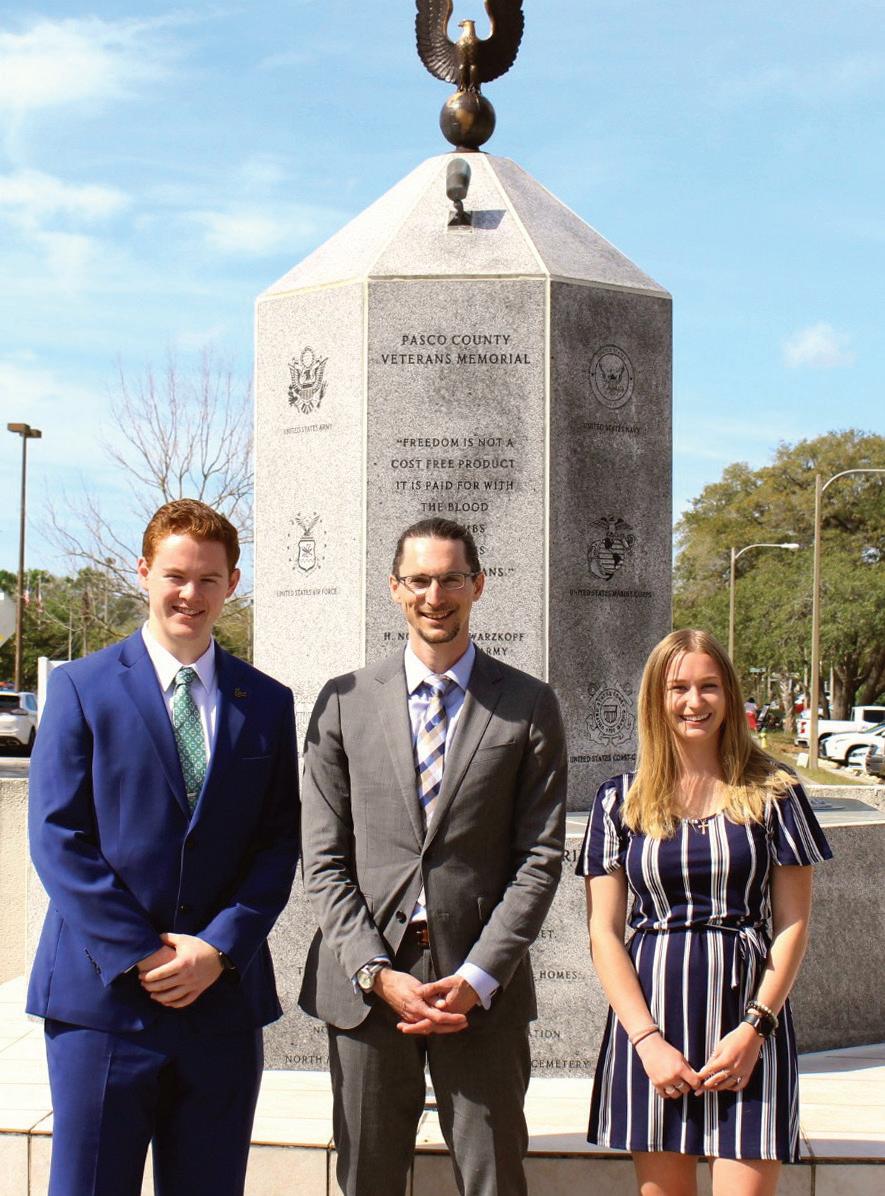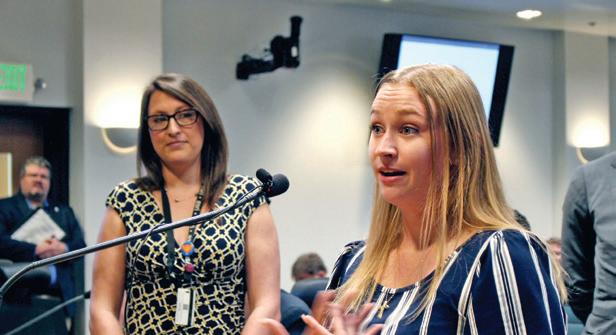
4 minute read
A Focus on Community Resilience
THE JUDY GENSHAFT HONORS COLLEGE encourages its students to tackle big problems with innovation and collaboration. For that reason, Honors faculty member Dr. Alan Bush knew that his students would be up to the task of helping local municipalities work together to tackle long-term resiliency planning. It was an idea a lifetime in the making. “Community Resilience is the theme of my life’s work,” says Bush. “I grew up in Cleveland, Ohio at a time when you could smell the tire fires driving into the city. Cleveland was faced with a collapsed economy, racial tension, and environmental degradation. My education insisted these issues were separate, but my research and career path has been to find the links within these major challenges that cities face in their desire to be resilient, and discover opportunities for renewal and regeneration that address all of them simultaneously. The Tampa Bay area’s risks related to sea level rise is a great example of the need for resiliency planning.” Through his Honors resiliency practicum course, first offered in 2019, Bush and his students studied how the ecological effects of climate change can impact Tampa Bay in infrastructural, economic, political, and social ways. They examined how each local government or organization was addressing the challenge individually and what opportunities existed for collaboration. “It became clear to me that multiple Tampa Bay municipalities knew that sea level rise was a long-term challenge,” says Bush. “Yet, while they were making plans individually, there had not been collective conversations. This is a problem
that requires local municipalities to build relationships and work together and it is important to give students the “ Honors students are excellent at this type of work because they embrace challenges with hard work, cross-disciplinary collaboration, and open minds.” – Dr. Alan Bush opportunity to understand that need.” In addition to meeting together as a class, Bush’s 12 Honors practicum students also volunteered as interns and researchers in local governments and organizations, focusing on community resilience. Staff members from the agencies attended class sessions as well, providing important perspective for the students. “Honors students are excellent at this type of work because they embrace challenges with hard work, cross-disciplinary collaboration, and open minds,” says Bush. “These students are focused on viable solutions and are not afraid to speak the truth, even when it’s uncomfortable.” Charles Nyberg and Shelby Knobel both interned with Pasco County government as part of the practicum, and the municipality was so impressed with their work and the valuable insight provided by Dr. Bush and his class
Advertisement
Left and Right: Dr. Alan Bush and his students, Charles Nyberg and Shelby Knobel, presented their resiliency research to the Pasco County Board of County Commissioners and received a special commendation.
that they formally expressed their appreciation. In Spring 2020, the Pasco County Board of County Commissioners unanimously passed Resolution 10-080 commending Bush for his work and thanking Nyberg and Knobel for their impactful resiliency research.
The students also expressed their appreciation to the county for the valuable experience. “I’ve lived in Pasco County my entire life,” says Nyberg. “Having the opportunity to work in local government in our county and work on resiliency specifically was a great opportunity.”
Knobel added that “seeing Pasco County’s openness to things that I am passionate about and want to pursue as a career was very profound. I appreciate the opportunity to work on this project and see the development of our work throughout the semester.”
As a result of the practicum, Pasco County hired two of the participating students in full-time positions, and implemented the class research into their county’s comprehensive plan.
Bush was pleased with the results of the practicum, and grateful that their work helped bring together local leaders from throughout Tampa Bay to discuss planning related to sea-level rise. “The communities to Tampa Bay are like a tapestry. If one community gets it right on sea level rise but all their neighbors do not, the whole tapestry still unravels” says Bush. “The core of community resilience is relationships, not infrastructure. When I learned that these important organizations had little contact with each other regarding this issue, I felt called to help connect them and build a community among practitioners.”
One additional result of this collaboration was bolstering the Tampa Bay Resilience Coalition, coordinated by the Tampa Bay Regional Planning Council. Bush introduced the local representatives participating in his practicum to the Director of the coalition, enhancing the network of professionals dedicated to preparing our area for the future.
“Florida will look radically different in 100 years,” says Bush. “It is critical that we build relationships and connections now to create a community that will thrive in that new reality. We have the opportunity to begin work today to improve the future of this great community.”












